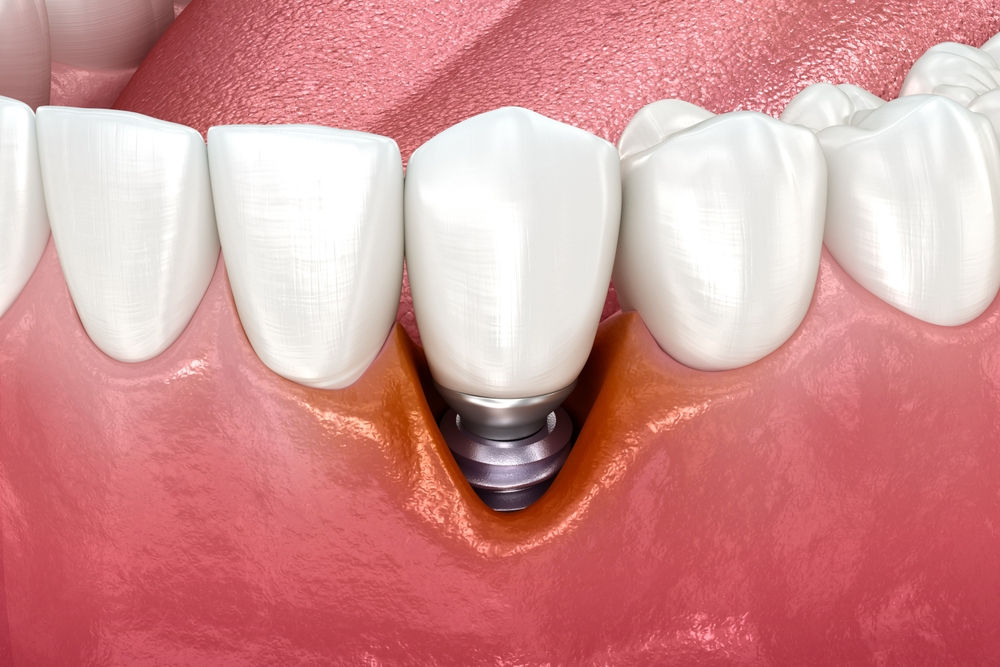Are Dental Implants Right for You? Understanding the Journey to a Perfect Smile
Have you ever wondered what goes into creating that picture-perfect smile with dental implants? While dental implants are a revolutionary tooth replacement option, understanding their potential risks is crucial for making an informed decision about your oral health. While the chances of experiencing complications are rare, it’s vital that you understand them.
We always recommend contacting our Oakville, ON, implant dentist, Dr. Pawel Zajac immediately if you experience anything out of the ordinary during your implant treatment or in your recovery period. Learn more about the possible complications associated with dental implant procedures by calling our Halton Region dental practice at 905-901-3824 if you’re a new patient or 905-257-6900 if you’re current.
The Success of Dental Implants
Dental implants are known as the number one tooth replacement option as their design mimics the natural tooth structure. The success rate of dental implants is generally very high, with studies suggesting that up to 95 percent of implants are successful over the long term. However, there are still some risks of dental implants, and potential complications that can happen as with any surgical procedure.
Dental Implant Risks
Infection
Like any surgical procedure, there’s a risk of infection after dental implant surgery. Infection at the implant site, in the gum tissue surrounding the implant, or in the bone that supports the implant can occur. Symptoms of infection may include pain, swelling, redness, and pus. If you experience any of these symptoms, it is important to contact your dentist immediately.
Dental Implant Failure
Implant failure occurs when the implant doesn’t integrate properly with the surrounding bone or if the implant becomes loose over time. This can happen because of a variety of reasons, such as improper placement, poor oral hygiene, or a lack of bone density. In some cases, dental implant failure may require the implant to be removed and replaced.
Nerve or Tissue Damage
Nerve or tissue damage can occur during dental implant placement. Nerve damage can cause pain or discomfort, numbness, or tingling in the lips, tongue, or chin. Tissue damage can lead to inflammation, bleeding, or infection. These complications can happen because of a variety of reasons, such as improper placement of the implant, poor oral hygiene, or a lack of bone density.
Sinus Problems
In some cases, dental implants placed in the front upper jaw bone can protrude into the sinus cavity, causing sinus problems such as sinus infections or sinusitis. This is more likely to occur if there’s insufficient bone to support the implant.
Allergic Reaction
Some people may have an allergic reaction to the materials used in the dental implant, such as titanium or other metals. Symptoms may include itching, rashes, or even anaphylaxis in severe cases.
Risk Factors
There are several risk factors that can increase the likelihood of experiencing complications from dental implant surgery:
- Poor Oral Health: If you have existing dental problems, such as gum disease or tooth decay, it can increase the risk of complications during and after dental implant surgery.
- Insufficient Bone Density: Dental implants need a strong foundation of bone to support them. If there’s not enough bone in the jaw, it can increase the risk of early implant failure.
- Smoking: Smoking can interfere with the healing process and increase the risk of implant failure.
- Medical Conditions: Certain medical conditions, such as diabetes, autoimmune disorders, or cancer, can increase the risk of complications during dental implant surgery.
- Medications: Certain medications, such as blood thinners, can increase the risk of bleeding during and after the procedure.
- Age: Older adults may be at higher risk of complications from dental implant surgery due to age-related changes in bone density and healing.
Dental Implant Complications
Complications that may occur after receiving dental implants include:
- Loosening or Shifting of The Implant: Over time, the implant may become loose or shift in the jaw, causing discomfort or negatively affecting the appearance of the implant.
- Peri-implantitis: A form of periodontal disease that can occur around the implant. It’s caused by bacterial infection, and if left untreated, it can lead to bone loss and implant failure.
- Implant Fractures: Like natural teeth, dental implants can also fracture. It can happen due to trauma, overloading, or poor bone quality.
Always follow instructions given to you by our dentist to decrease the chances of any complications developing.
Reducing Your Risk of Complications
While there’s always some risk associated with any surgical procedure, there are steps you can take to reduce your risk of experiencing complications from dental implant surgery:
- Choose a Qualified and Experienced Dentist: It’s important to choose a dentist who has experience with implant dentistry and dental implant surgery. Also, check to see if they have a good track record of success with surgical procedures.
- Maintain Good Oral Hygiene: Brush and floss your natural teeth and implants regularly and visit your dentist for regular cleanings and checkups.
- Follow Your Dentist’s Post-Surgery Instructions: Our dentist will provide you with specific instructions on how to care for your implant after surgery. It’s important to follow these instructions carefully to ensure proper healing.
- Avoid Smoking: Avoid smoking and tobacco as it can interfere with the healing process and increase the risk of implant failure.





Frequently Asked Questions
What can I do if I experience complications or problems with my dental implant?
How can I reduce the risk of infection after the implant procedure?
Can my body reject a dental implant?
Can anyone get a dental implant?
What is the most common cause of dental implant failure?
Achieve Your Best Smile With Dental Implants, Call Today!
While some risks and complications can occur with dental implants, they’re rare. With a 95 percent success rate, most patients achieve beautiful smiles and excellent oral health with dental implants. To learn more about dental implants in Burlington, Brampton, Toronto, and the greater Oakville area, contact Zajac Dental today by calling 905-901-3824 if you’re a new patient or 905-257-6900 if you’re current.